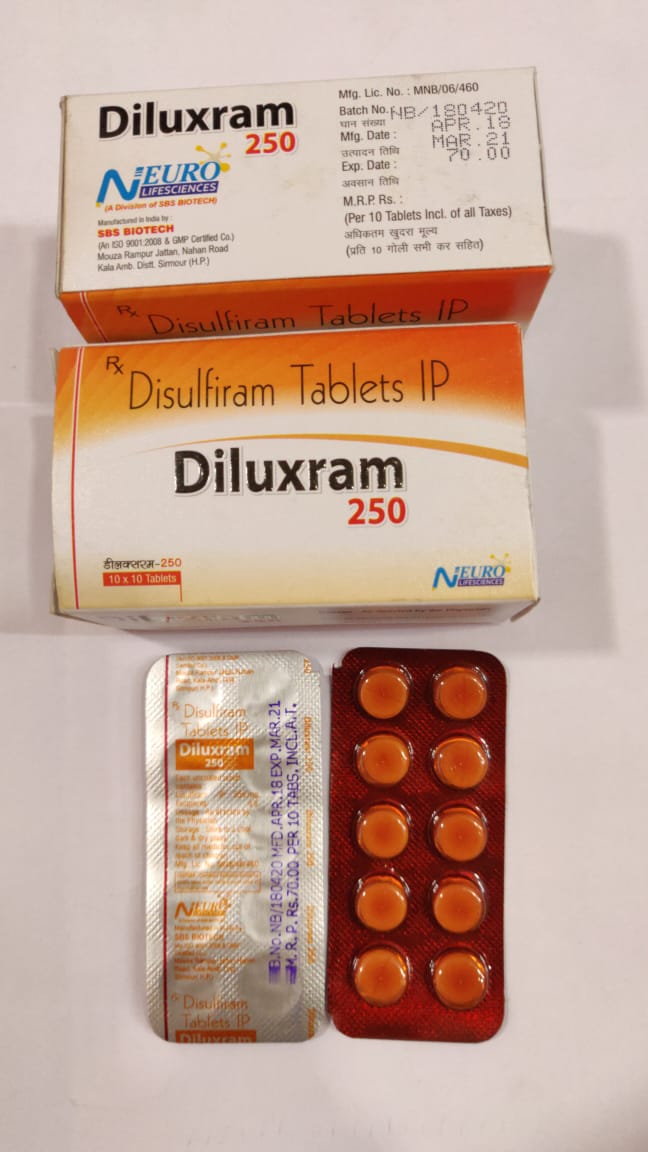Disulfiram Information
Used for Treating Alcoholism
What is this drug used for?
– It is used to help you stop drinking alcohol.
– It is used to help keep you alcohol-free.
Possible side effects
Disulfiram may cause side effects. Tell your doctor if any of these symptoms are severe or do not go away:
– Feeling sleepy.
– Feeling tired or weak.
– Not able to get or keep an erection.
– Pimples (acne).
– Headache.
– Change in taste.
Some side effects can be serious. If you experience any of these symptoms, call your doctor immediately or get emergency medical treatment:
– Signs of an allergic reaction, like rash; hives; itching; red, swollen, blistered, or peeling skin with or without fever; wheezing; tightness in the chest or throat; trouble breathing, swallowing, or talking; unusual hoarseness; or swelling of the mouth, face, lips, tongue, or throat.
– Change in eyesight.
– A burning, numbness, or tingling feeling that is not normal.
– Mood changes.
– Change in how you act.
– Very bad and sometimes deadly liver problems have happened with this drug. Call your doctor right away if you have signs of liver problems like dark urine, feeling tired, not hungry, upset stomach or stomach pain, light-colored stools, throwing up, or yellow skin or eyes.
Medication Safety Issues
Sound-alike/look-alike issues:
Disulfiram may be confused with Diflucan
Storage/Stability
Store at 20?C to 25?C (68?F to 77?F). Protect from light.
Adverse reactions
Frequency not defined.
Central nervous system: Bitter taste (garlic), drowsiness, fatigue, headache, metallic taste, peripheral neuritis, peripheral neuropathy, polyneuropathy, psychosis
Dermatologic: Acneiform eruption, allergic dermatitis, skin rash
Genitourinary: Impotence
Hepatic: Cholestatic hepatitis, fulminant hepatitis, hepatic failure (multiple case reports)
Ophthalmic: Optic neuritis








Reviews
There are no reviews yet.